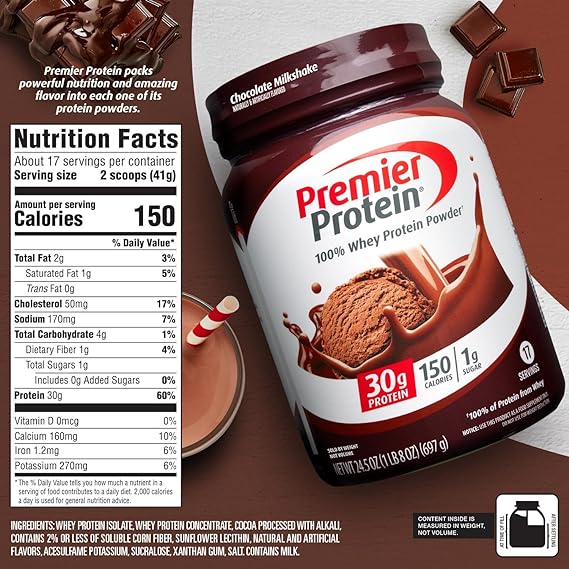Care for Your Health & Wellness with Nutrients and Food
In the hustle and bustle of modern life, maintaining health and wellness can often take a backseat. However, a balanced diet rich in essential nutrients is crucial for both physical and mental well-being. Understanding the role of different nutrients and incorporating nutrient-dense foods into your daily diet can significantly enhance your overall health. Let’s delve into how you can care for your health and wellness with the power of nutrients and food.
Understanding Essential Nutrients
Essential nutrients are compounds that the body cannot synthesize on its own or in sufficient quantities. These nutrients must be obtained from the diet and are vital for growth, disease prevention, and overall health. They can be categorized into six main groups:
1. Carbohydrates: Provide energy.
2. Proteins: Essential for growth, repair, and maintenance of body tissues.
3. Fats: Important for brain health, energy, and absorption of certain vitamins.
4. Vitamins: Support various bodily functions.
5. Minerals: Involved in many physiological processes.
6. Water: Vital for hydration and bodily functions.
Nutrient-Dense Foods for Optimal Health
To maximize your health and wellness, focus on nutrient-dense foods. These foods provide a high amount of vitamins, minerals, and other beneficial compounds with relatively few calories. Here are some top nutrient-dense foods to incorporate into your diet:
1. Leafy Greens: Spinach, kale, and Swiss chard are rich in vitamins A, C, and K, as well as minerals like iron and calcium. These greens are also high in fiber, which supports digestive health.
2. Berries: Blueberries, strawberries, and raspberries are loaded with antioxidants, which help protect your cells from damage. They are also a good source of fiber and vitamin C.
3. Nuts and Seeds: Almonds, chia seeds, and flaxseeds provide healthy fats, protein, and fiber. They also contain important vitamins and minerals like vitamin E, magnesium, and zinc.
4. Fish: Fatty fish such as salmon, mackerel, and sardines are excellent sources of omega-3 fatty acids, which are crucial for heart and brain health. They are also rich in protein and vitamin D.
5. Whole Grains: Foods like quinoa, brown rice, and oats are high in fiber, B vitamins, and essential minerals. Whole grains help maintain energy levels and support digestive health.
6. Legumes: Beans, lentils, and chickpeas are packed with protein, fiber, iron, and folate. They are an excellent plant-based protein source, particularly for vegetarians and vegans.
7. Cruciferous Vegetables: Broccoli, cauliflower, and Brussels sprouts contain vitamins C and K, fiber, and phytonutrients that have cancer-fighting properties.
Tips for a Balanced Diet
Achieving a balanced diet involves more than just eating nutrient-dense foods. Here are some tips to help you maintain a well-rounded diet:
1. Eat a Variety of Foods: Incorporate different types of foods to ensure you get a broad range of nutrients.
2. Control Portion Sizes: Pay attention to portion sizes to avoid overeating and maintain a healthy weight.
3. Stay Hydrated: Drink plenty of water throughout the day to stay hydrated and support bodily functions.
4. Limit Processed Foods: Reduce your intake of processed foods, which are often high in unhealthy fats, sugars, and sodium.
5. Mindful Eating: Practice mindful eating by savoring your food, which can help you enjoy your meals more and prevent overeating.
The Connection Between Diet and Mental Health
Your diet not only affects your physical health but also plays a significant role in your mental well-being. Nutrient-rich foods can improve brain function, mood, and mental clarity. For example:
– Omega-3 Fatty Acids: Found in fish, flaxseeds, and walnuts, omega-3s are known to reduce inflammation and support brain health, potentially reducing symptoms of depression and anxiety.
– B Vitamins: These vitamins, found in whole grains, meat, eggs, and dairy, are essential for brain health and can help improve mood and reduce fatigue.
– Antioxidants: Foods rich in antioxidants, such as berries and leafy greens, protect brain cells from damage and support overall cognitive function.
Conclusion
Caring for your health and wellness through nutrients and food is a powerful approach to achieving optimal well-being. By incorporating a variety of nutrient-dense foods into your diet and following a balanced eating plan, you can enhance your physical health, support mental well-being, and lead a more vibrant, energetic life. Remember, small dietary changes can make a big difference, so start today and reap the long-term benefits of a healthy diet.
Comments ( 1 )
Comments are closed.



Ut venenatis tellus in metus. Lacus laoreet non curabitur gravida. Dolor purus non enim praesent elementum.